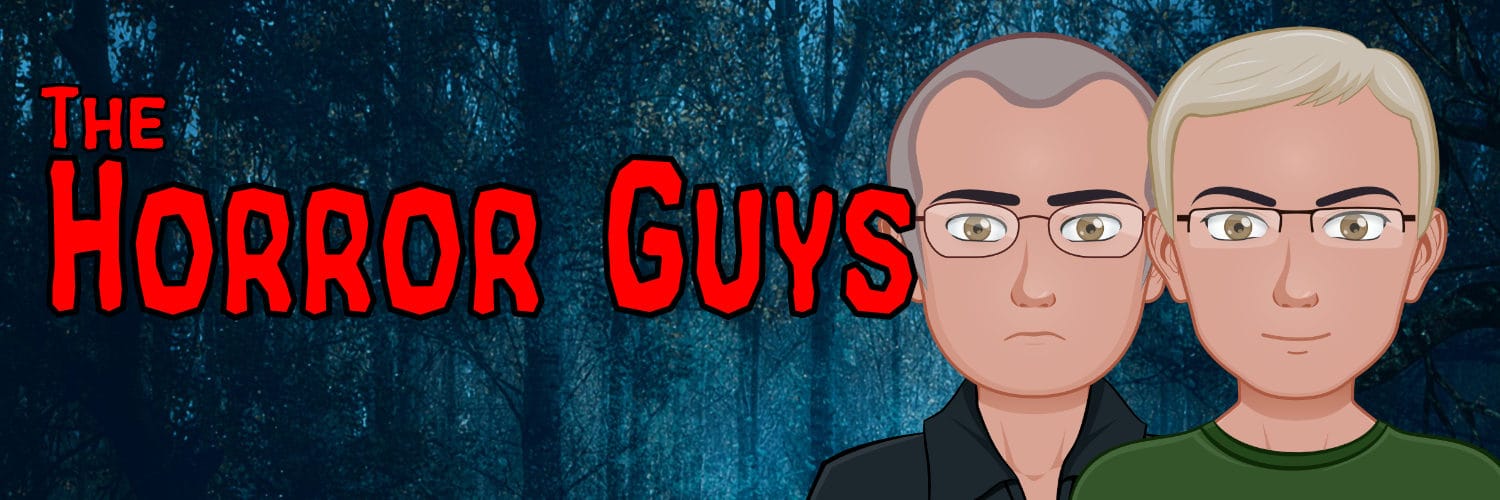- Directed by Lukas Feigelfeld
- Written by Lukas Feigelfeld
- Stars Aleksandra Cwen, Celina Peter, Claudia Martini
- Run Time: 1 Hour, 42 Minutes
- Trailer: https://www.youtube.com/watch?v=JW8sZWR4tpI

Spoiler-Free Judgment Zone
It’s beautifully filmed, sad, creepy, and atmospheric. There’s a slowly unwinding plot in there somewhere too, though it’s a little hard to piece together.
Synopsis
It is the 15th century in Europe.
An old woman and a child walk through the snow, dragging a sled behind them. This is Twelfthnight, and they need to get home before dark. Suddenly, they stop. It’s dark, and there’s a weird sound in the woods. Anyway, they make it home and have dinner. Three men wearing animal masks and carrying torches arrive. They bang on the doors and windows, terrorizing the woman and child inside. “You should be burned down, you witches. We’ll get you!” one shouts.
The next morning, Albrun, the little girl, is gathering sticks outside and hears a bell ringing in the distance. The old woman, her mother, then grabs her heart and collapses in the snow. Auburn takes her back home and cares for her, but it doesn’t look hopeful. A very dour-looking doctor arrives and examines her. She’s got a big growth or tumor on her side, and the doctor just leaves silently; there’s nothing to be done. That night, Mother develops a taste for blood and eats their cat and then runs off.
The next morning, Albrun goes looking for her mother and follows her into the woods. She finds her, dead and covered in snakes.
Years pass. Albrun is grown up and has a baby. The local children think she’s a witch too. Swinda is nice to her, but no one else is. Albrun raises goats and sells milk and cheese. Swinda wants Albrun to go see her priest, who lives in a church full of skulls. He finds her willingness to live all alone to be suspicious, and probably sacrilegious. He gives her a painted skull, which she takes home with her.
Albrun enjoys milking the goats. She enjoys it a little too much, touching herself as she does it. Swinda comes by for a visit; she brings an apple. She sees the skull in the cabin, and she thinks that’s strange but doesn’t ask about it. That night, Albrun has naughty dreams.
The next day, Albrun and Swinda get together again. Swinda says Albrun has nothing to fear from her. “They come at night and like animals, they take you,” she warns. “And a few months later, you bear a child.” We don’t know who baby Martha’s father is, so Swinda is assuming some things. Swinda introduces Albrun to her husband, and the three of them lay in the field and eat apples. When they have her alone, Swinda holds Albrun down as her husband rapes Albrun.
When Albrun recovers enough to go home, she finds one of her goats has been killed and cut open. In retaliation, she taints their source of drinking water with a dead diseased rat. Later, we see one of those “Bring out yer dead” guys dragging a cart with corpses across the field to a burning pit with many other bodies. Albrun smiles at Martha.
On the way home, Albrun stops and eats some mushrooms; these aren’t the portobello variety, and she doesn’t wake up until nearly dark. She walks through the woods in a daze and then wades out into the muddy swamp. She drowns baby Martha in the swamp. She then goes under herself, and there’s blood: lots and lots of blood. Eventually, Albrun climbs out of the swamp, not dead.
That night, she hears sounds coming from the skull in her cabin. She finds the corpse of her dead baby and cries. She puts the dead baby in the boiling saucepan and makes dead baby soup. Then it’s dinner time!
After eating dead baby soup, Albrun hallucinates seeing her long-dead mother and runs out into the woods. By morning, her eyes have turned white, and her cabin burns down.
Commentary
There’s bunches of really cool scenery and fun sets. There’s also very little dialogue. It’s subtitled, but there’s so little said that even if you hate subtitled films, this is bearable. On the other hand, it’s very, very slow, and it’s never quite clear what the actual plot is about. It’s just plain weird.
It is also a very dark film. Literally dark. We made the mistake of watching this one on a bright and sunny afternoon, and there were several scenes where we couldn’t quite tell what was going on due to the low contrast on the TV screen. Save this one for late at night.
There are themes of superstition, loneliness, and insanity, and it also has lots of old-timey witchcraft allegories thrown in, but very little actually happens. If you’re looking for a super atmospheric film that’s sure to creep you out, this might be your film– if you don’t go to sleep in the middle first.

